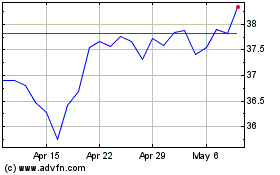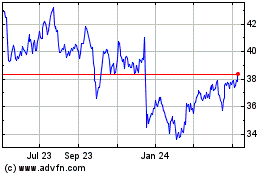Skokie is one of the first communities to
receive EV funding through ComEd’s CEJA-supported rebate programs
to spur EV adoption
ComEd today joined Illinois Governor JB Pritzker to present a
$45,000 electric vehicle (EV) rebate check to the Village of
Skokie, helping provide funding to electrify the Village’s
municipal fleet. Skokie is one of the first municipalities to
receive a rebate through ComEd’s beneficial electrification (BE)
plan, supported by the state’s Climate and Equitable Jobs Act
(CEJA), which is designed to accelerate the adoption of
all-electric technologies.
Funding for fleet EVs and related infrastructure is an essential
step to reducing barriers to EV adoption and supports a state goal
of achieving 1 million EVs on Illinois roadways by 2030. Today,
with more than 111,000 registered EVs in Illinois, the vast
majority of them, nearly 90 percent, are located in the ComEd
service region of northern Illinois.
“Reaching our state’s EV goals requires more than just
individual consumer choices—it means municipalities, school
districts, and other organizations also commit to EVs as we
fundamentally reassess the landscape of clean transportation in
Illinois,” said Governor JB Pritzker. “Initiatives like
ComEd’s rebate program for municipal fleets make this sort of
large-scale change possible, and I’m grateful for their partnership
in working towards this goal.”
ComEd EV rebate programs, launched earlier this year, are making
a significant impact in helping communities adopt EVs, with the
programs deploying more than $9 million in rebates to customers to
date, and with half of the funds provided to equity investment
eligible communities (EIEC), as defined by the state of Illinois,
or for low-income customers, both of which are prioritized for
funding in ComEd’s programs.
Since ComEd EV rebate programs launched in February, the company
has incentivized the addition of over 1,600 new residential and
commercial charging ports and 109 new fleet vehicles, including
more than a dozen heavy-duty vehicles and buses, and with EV
projects funded in nearly 300 unique zip codes in northern
Illinois, ComEd’s service region. Over this same time period, the
percentage of monthly EV registrations in the region have doubled,
outpacing the national rate.
“As more customers take advantage of our EV rebate programs, it
will lower carbon emissions and improve air quality in our
communities,” said ComEd President and CEO Gil Quiniones.
“Working with the state of Illinois and partners across the region,
ComEd is not only delivering unparalleled, nation-leading
reliability, we’re also helping communities like Skokie chart a
path toward a cleaner, more sustainable future.”
With the help of the $45,000 ComEd rebate, Skokie purchased six
municipal fleet vehicles, a key component of their push to
electrify and reduce carbon emissions. ComEd funding for Skokie
electrification projects will serve EIECs specifically, and further
the plans outlined in the Village’s Environmental Sustainability
Plan, adopted in 2022, which includes goals for dramatically
reducing carbon emissions.
“With support from ComEd and the State of Illinois, Skokie is
leading the charge on municipal adoption of electric vehicles,
helping the Village reduce fleet emissions and save money on
vehicle purchases and maintenance,” said Skokie Mayor George Van
Dusen. “More than 1,000 EVs are now on the road in Skokie,
including a growing number of our municipal fleet vehicles, putting
the Village on the way to achieving the ambitious emissions
reduction goals outlined in our Environmental Sustainability Plan
and paving the way to cleaner air benefitting our entire
community.”
Skokie is making rapid progress in expanding EVs, with four
public charging stations and five municipal fleet ports added to
date, and additional charging ports planned over the next year.
Additionally, Skokie this year became the first community to
partner with ComEd on a fleet electrification assessment, and to
participate in the ComEd and Metropolitan Mayors Caucus (MMC) EV
Readiness Program, earning a certification in December 2023. Both
efforts will help prepare the community to further expand EV
implementation and support increased EV adoption in the years
ahead.
“A key reason for the EV Readiness Program is to help
municipalities prepare for rapidly emerging investment in EVs and
EV charging infrastructure,” said Kevin Burns, Mayor of the City
of Geneva and Executive Board Chairman and Environment and Energy
Committee Chairman of the Metropolitan Mayors Caucus. “This
preparation paid off for Skokie with ComEd rebates for six new
electric vehicles.”
With transportation the number one contributor of carbon and
other harmful emissions in the U.S. today, electrifying
transportation, including cars and public transit, can create
tangible health benefits for all communities and families across
northern Illinois. EVs play a role in curbing emissions, while
also helping lower operations and maintenance costs for their
users. The transition to transportation electrification results in
less pollution and enhanced air quality for all communities and
residents, even those who choose not to drive an EV.
“Chicagoland saw the worst air quality in the world last summer
because of global warming-driven wildfire smoke combined with the
emissions from millions of vehicles in our region,” said Brian
Urbaszewski, Director of Environmental Health Programs at
Respiratory Health Association. “More electric vehicles on our
roads means less air pollution and fewer asthma attacks, doctor
visits and respiratory hospital admissions. This saves lives.”
EV benefits carry additional impact for communities historically
impacted by pollution or disinvestment. For this reason, ComEd’s
rebate programs prioritize equity, reserving at least half of all
funds for EIECs or low-income customers, with rebates available in
a higher amount for customers residing in or doing business within
these communities.
ComEd EV funding programs are still accepting applications and
will run through end of 2025. Additionally, ComEd recently put
forward expanded investments for EVs, continuing many of the same
transportation electrification rebates offered in the first plan,
to expand those investments for customers in 2026-2028. That plan
would offer an additional $60 million a year for beneficial
electrification investments and is currently under review by the
Illinois Commerce Commission.
In addition to EV rebates, ComEd offers customers a free
resource to guide them on their EV journey, the EV Toolkit,
available at www.ComEd.com/EV. The EV Toolkit can be used to review
state, federal and local rebates and incentives available for EVs,
to plug in information for a cost savings assessment, to review
various EV models and chargers, and more. Business and public
sector customers who are still exploring their options and
wondering if EVs make sense for their operations can request a free
Fleet Electrification Assessment from ComEd to help you plan for
your transition and uncover the benefits of going electric.
Business and Public Sector customers can also apply for a
reservation of funds through the ComEd Make Ready Rebate program,
provided their project is scheduled to be completed within six
months of making their reservation. The reservation application is
available here.
For more on the current ComEd BE rebates application and
eligibility, please visit www.ComEd.com/clean.
About ComEd
ComEd is a unit of Chicago-based Exelon Corporation (NASDAQ:
EXC), a Fortune 200 energy company with approximately 10 million
electricity and natural gas customers – the largest number of
customers in the U.S. ComEd powers the lives of more than 4
million customers across northern Illinois, or 70 percent of the
state's population. For more information visit
ComEd.com, and connect with the company on
Facebook, Instagram, LinkedIn,
X, and YouTube.
View source
version on businesswire.com: https://www.businesswire.com/news/home/20240903527826/en/
ComEd Media Relations 312-394-3500
Exelon (NASDAQ:EXC)
Historical Stock Chart
From Oct 2024 to Nov 2024

Exelon (NASDAQ:EXC)
Historical Stock Chart
From Nov 2023 to Nov 2024
